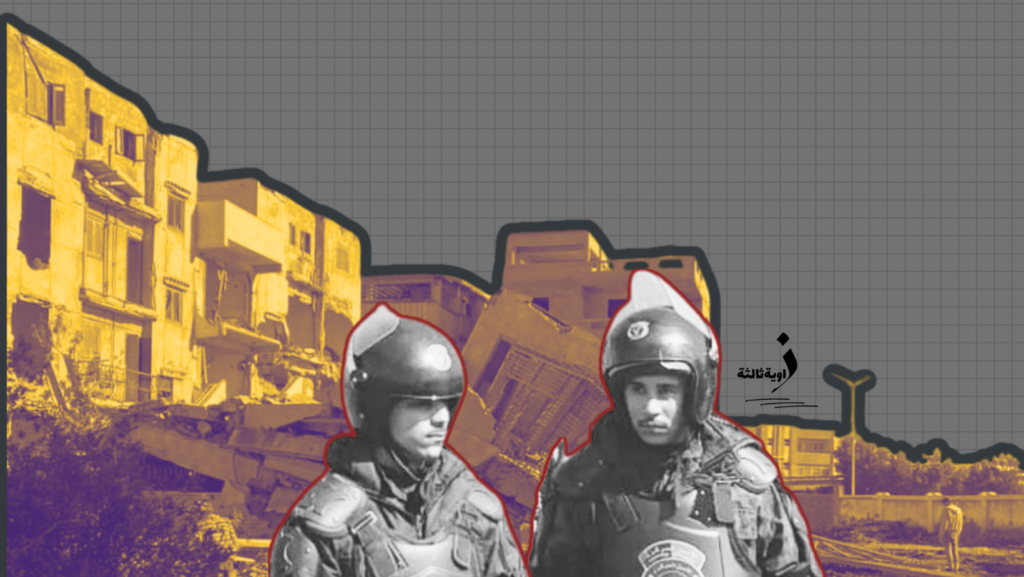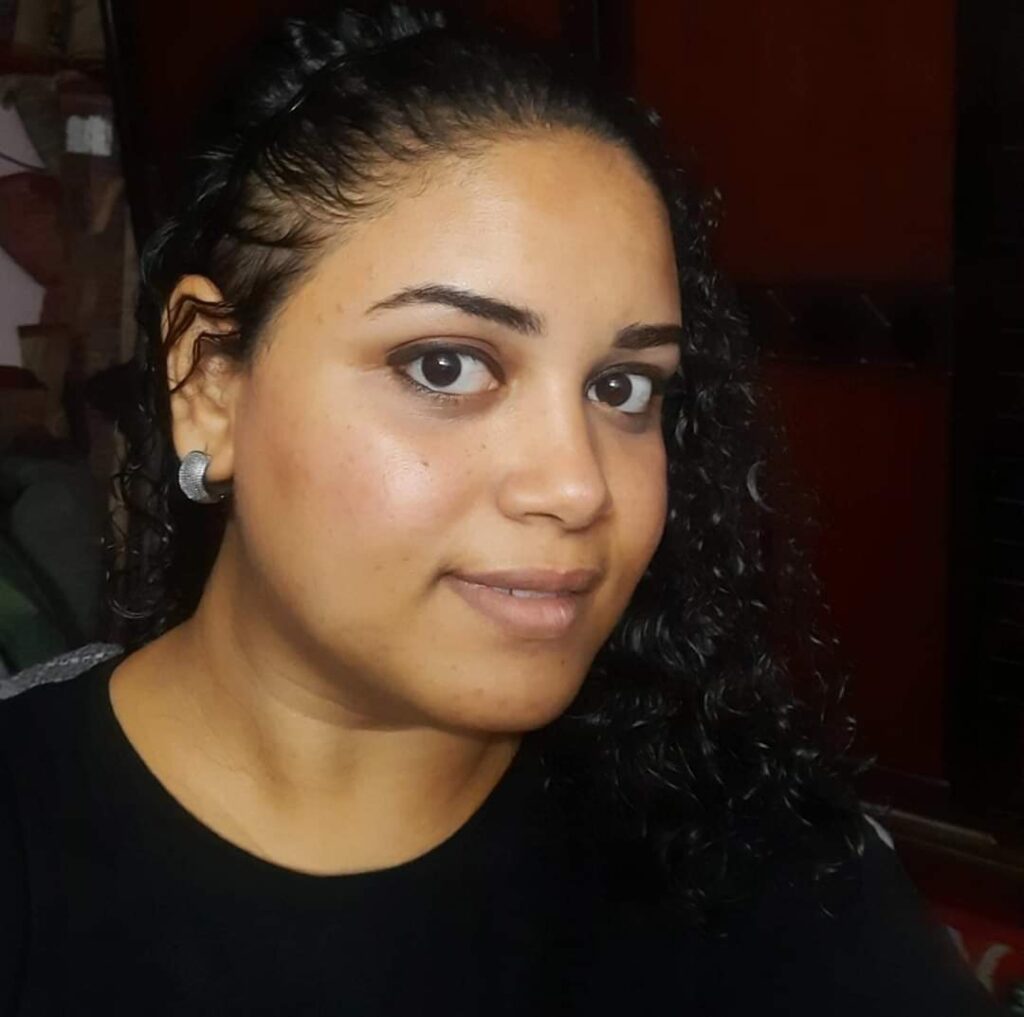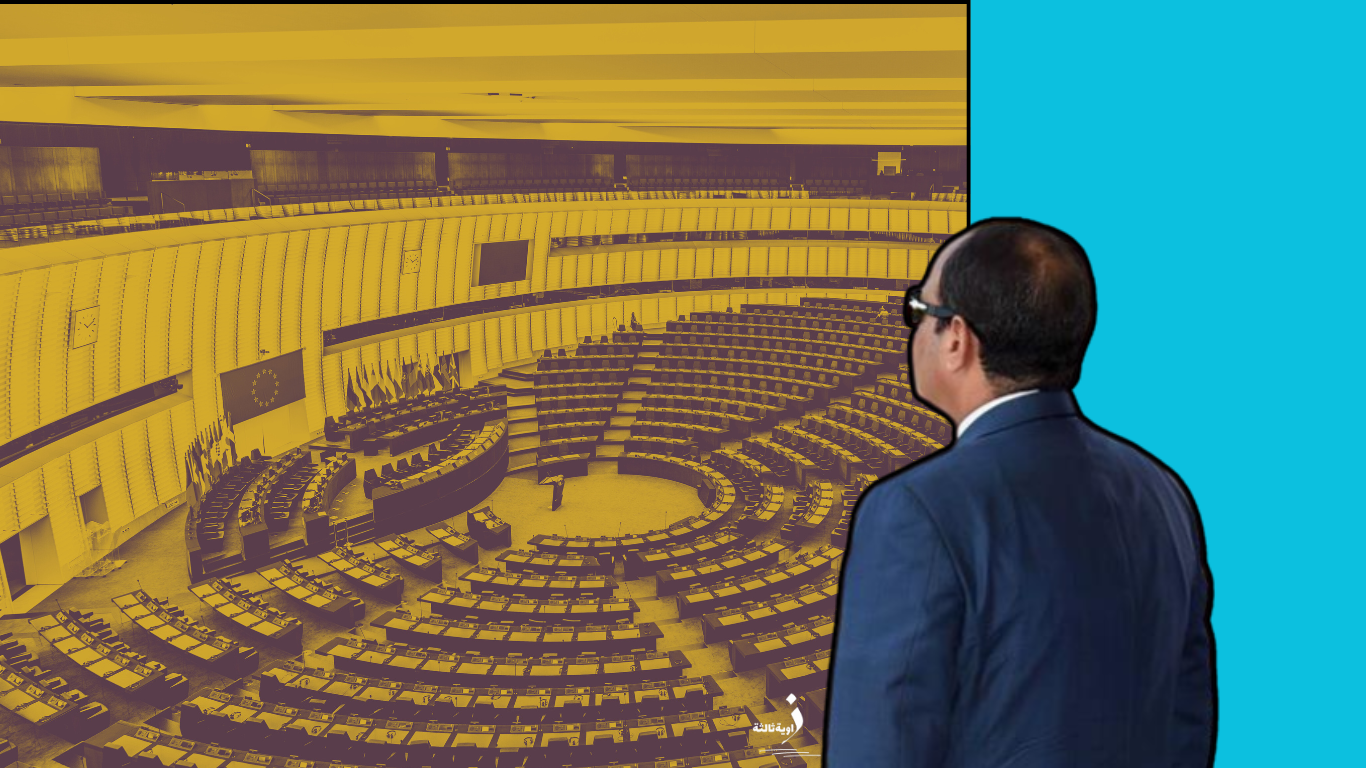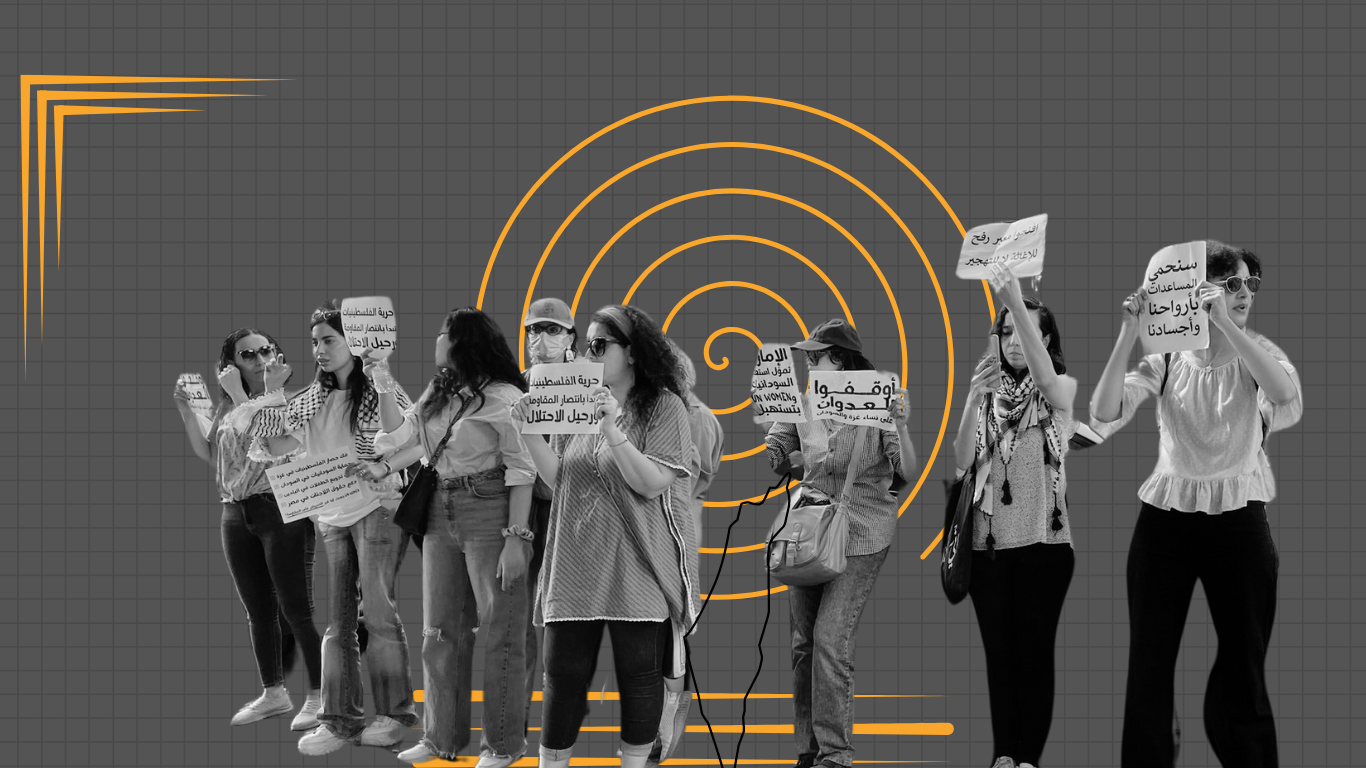On the third of February, bulldozers and police forces spread throughout Beautiful suburb in Port Said, initiating demolition and removal of houses in the suburb. These operations may continue for the next few days until the executive authority completes its tasks in demolition. On the second day of the operations, debris from a house fell on its guard, causing a fatality and becoming the first victim of the removal and demolition operations.
| Beautiful suburb is located within the neighborhoods of the city of Port Said in northeastern Egypt. In 1978, Port Said governorate allocated 317 plots of land directly on the Mediterranean coast, 10 kilometers from the city, as part of the governorate’s initiative to reduce population density by distributing residents in new areas. |
Zawia3 has been in contact with residents of Beautiful suburb over the past few days to monitor the latest developments. We have also communicated with lawyers representing some residents to defend them against the removal and demolition decisions made by the governorate without compensation. According to the information we have obtained, the suburb, which includes more than 400 residential buildings and about 2500 families, was built and developed with the residents’ funds under the governorate’s license. The governorate granted a long-term usufruct right renewed annually to the residents, and the residents themselves installed all utilities, including water, gas, and electricity, at their own expense without any government support, as stipulated by the governorate at the time when it handed over the area for building and development.
As of the preparation of this report, the governorate’s bulldozers, protected by police forces, have demolished about 15 buildings, all of which were vacant with no residents. However, it is evident that this will not stop at this point, as the governorate has reinforced and increased the number of demolition bulldozers conducting removal operations over the past few days, according to the residents’ accounts.
Read Also: Egypt: Ras Al-Hikma Residents Unite Against Forced City Sale
![]()
Spread of Thugs
Dalia Gaber, a mother of three and a resident of the suburb, informs us that after purchasing the house where she resides along with some of her siblings, she says, “The area consists of residential villas divided into floors. My three siblings and I bought a property with its entire floors, and we have been living there for almost ten years.”
She explains, “The government demolished about 15 buildings that were in the red-brick construction phase over two or three days. We were surprised by the spread of thugs who invaded the neighborhood, spreading fear and terror. They stormed several vacant houses that their residents had closed, stealing everything possible, including doors and windows, despite the presence of police forces, which did not intervene to prevent them.”
According to her description, after the thugs finished their looting, the neighborhood begins to be demolished using bulldozers, starting with vacant properties. They informed them that they have instructions to remove them, “but we are aware that they have started with them, and as soon as they finish, it will be the turn of the occupied properties.” She indicates that the authorities responsible have not initiated negotiations with the residents regarding the necessary compensations. She continued, “Two years ago, they sent us eviction notices, and we rejected them, heading to court in the hope of stopping those decisions. A year later, the governor insisted on completing the evacuation and withdrawing it, claiming that it had become an informal settlement.” She describes how the residents found garbage and dilapidated furniture in the suburb’s streets without identifying their source. Later, they learned that the governorate presented images of these gatherings to the court during the cases of affected residents, falsely claiming that the area had become informal and needed to be removed.
She concludes that the governorate informed her of violating the law when she purchased the property she lives in, despite the sale and purchase transaction being official and taking place in the neighborhood.
Fathi Al-Fayoumi, one of the area’s residents, says, “The governorate granted us the land with a usufruct right with a contract renewed annually, and for forty years, we have been regularly paying the contract value. The land was handed over as a desert without buildings or facilities, and we developed it.”
“I have been living in the area for 40 years; it was called the Tourist Gamil Village, and now it is the residential Beautiful suburb. Some villas are vacant, and some are rented, but most are occupied. The governorate wants to evict us from the area to sell it to an unknown investor,” says Al-Fayoumi. He continues, “The crisis started two years ago when the neighborhood authority refused to accept payment for the usufruct right, claiming that the land must be evacuated. The governorate decided not to renew without mentioning any compensation. So we went to court to pay the rent, and now, after two years, they started demolishing buildings as a prelude to evacuating the land. So far, residents have not seen the removal decisions. He points out that obtaining the land with the usufruct right deprived them of getting apartments or allocations following the governorate.
“The spread of thuggery operations coinciding with demolition operations makes us stay awake all night to protect our properties. Men are outside, and women inside the houses also do not sleep, fearing home invasions and theft.”
In contrast, a large number of suburb residents filed lawsuits to stop the governorate’s decisions after receiving eviction warnings two years ago. Khalil Abu Talib, who owns a villa on a plot of land in Beautiful suburb and is licensed with an allocation contract dated 2008 based on the Local People’s Council decision, filed a lawsuit against the governorate’s decision after receiving an eviction notice in March 2022. The notice lacked clear data on evacuating the villa, contrary to the provisions of the allocation contract, despite his commitment to all contract terms. He built the villa according to the required specifications, and the building permit was issued in his name.
The Egyptian Commission for Rights and Freedoms criticized the demolition and eviction process in a statement. It stated, “The forced eviction operations for the residents of Beautiful suburb west of Port Said constitute a serious threat to citizens. It continues the policies of marginalization and neglect experienced by society, confirming that what is happening now is a violation of the fundamental human right to a safe and suitable dwelling. The result is the displacement of hundreds of families without providing an alternative, and a clear violation of Egypt’s international treaties.”
![]()
Compensation According to Civil Law
| Usufruct in civil law, according to Article 985, is a derivative of ownership that allows the usufructuary to exploit and use something owned by another. The owner retains the right to dispose of it, referred to as the ownership right. According to civil law, the owner is entitled to usufruct with ownership only in the aspects agreed upon with the original owner. This includes obtaining the natural and civil fruits of the thing or granting usufruct by transferring it or mortgaging it without affecting the ownership right. |
For four decades, families have settled in this neighborhood after being allocated land under the usufruct right. Until 2019, when the Port Said governorate unilaterally terminated the contract, refusing to accept annual payments from residents for the units, claiming that the neighborhood had become informal and needed removal and development.
Mohamed Abdo Salem, the Secretary of the Lawyers Syndicate in Port Said and one of the lawyers representing the suburb residents, states, “The suburb’s land was allocated under a usufruct right for one year, renewable annually with a condition to build. The neighborhood issued building permits in the names of those to whom the land was allocated for construction, and the residents became owners of the buildings, not the land.”
In his interview with Zawia3, he further explains that starting the demolition without discussing compensation or negotiating with the building owners constitutes a significant crisis. If the state wishes to reclaim the land, it must compensate the building owners according to civil law. He points out that as long as the neighborhood allowed citizens to build and granted licenses, the state is obligated to pay compensation to the owners.
The Secretary of the Lawyers Syndicate emphasizes that citizens allocated the land have been deprived of any projects proposed to them. However, the local council’s approval of the development plan targeting the removal of buildings and withdrawal of the land is necessary. It is not appropriate for the governor to make such decisions alone, especially since the local council decided to hand over the land to the residents initially.
| According to Article 925 of the Egyptian Civil Law, if the person who constructed the structures believed in good faith that he has the right to establish them, the landowner cannot request removal. Instead, the landowner can choose between paying the cost of materials and labor or paying an amount equal to the increase in the land’s value due to these structures. This is unless the person who constructed them is asked to remove them. |
Ragab Saber, another lawyer representing Beautiful suburb residents, agrees with this, stating that building owners have the right to fair compensation. He adds, “We filed lawsuits to stop the eviction warnings in administrative court and demanded compensation. We requested the appointment of an expert to assess the value of the buildings, but unfortunately, the court did not respond. Now we are trying again before the higher administrative court.”
The lawyer in cassation clarifies that it is customary for the governorate to compensate residents in case of removal decisions, but this time it did not happen. He notes that the demolition decision was issued by urban planning, not the governorate.
In March 2023, Member of Parliament Ahmed Farghali submitted an urgent statement against the Prime Minister regarding the demolition of units and residential buildings in Beautiful suburb. This led to thefts, panic among residents, and the spread of thugs and scrap dealers in the area after the demolition began. He emphasized that Gamil Residential Suburb is undergoing demolition without prior notice or judicial or executive decisions. In 1978, 319 plots were allocated with an area of 120 square meters each by the Local People’s Council for Port Said.
The users committed to paying the annual usufruct right and property tax fees for years under an indefinite usufruct contract. They built and introduced facilities at their own expense. The residents gained a legal and social status 42 years ago. These decisions caused panic among families, and cases of theft spread. They demanded an immediate stop to the demolition until studying different proposals, alternatives, and the legal status of the area.
![]()
The Development Plan
General Adel El-Ghadban, the governor of Port Said, stated in his speech before the Executive Council of the governorate that the current situation of Gamil Residential Suburb “does not befit the development and growth witnessed by Port Said. The decision to allocate land under the usufruct right through the local council of the governorate in previous years, at an annual value of 600 pounds per square meter, needs to be reconsidered. This is a villa area with two or three floors, and this situation must change because this area is considered a natural reserve, and any informal settlements must change.”
He continued, “The area must enter the development that is taking place at the western entrance of Port Said. It is not permissible for it to be a natural reserve, and we must correct previous mistakes according to the requirements of the current stage.”
Responding to a parliamentary inquiry by MP Ahmed Farghali about the Port Said governorate sending eviction notices to the residents of “Gamil” and that some locals are willing to buy those lands at their real prices, El-Ghadban said, “No harm and no harm, we are working to attract investment for our country and citizens.”
The Supreme Council for Urban Planning and Development approved in December 2020 declaring Beautiful suburb in Port Said as a “replanning” area. According to Article 47 of the Urban Planning Law No. 3 of 1982, this means that properties in that area can be removed for development and public benefit purposes, with compensation to their owners and rights holders. The customs gate of Gamil was also moved closer to the residential area, making it a target for investors. Meanwhile, residents wonder about the unknown investor who wants to buy it and which area will be the next for forced displacement of its residents.












